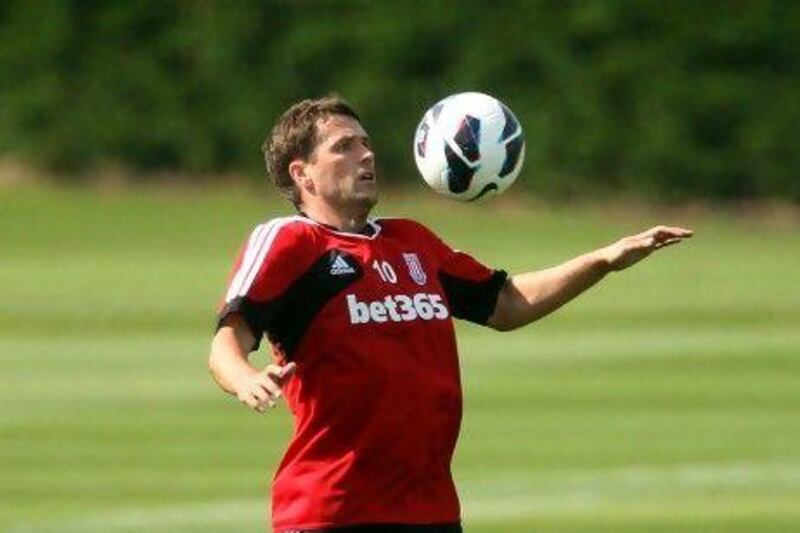The images are unforgettable, burnt into the memory by both the power of their immediate impact and the constant repetition.
There was the 18-year-old Michael Owen eviscerating the Argentina defence with a solo run of startling brilliance. His 21-year-old self destroying Germany in historic fashion in Munich and then accepting the European Footballer of the Year award. Even an ice-cool Owen, approaching his 30th birthday, settling the greatest Manchester derby of all in the 97th minute. The sprinter's speed had gone but the nerves of steel remained.
At some stage today, the cameras will be trained on Owen again, ready to capture another picture. This will have a novelty value: Owen in a Stoke shirt. For the possessor of a CV that includes Liverpool, Real Madrid and Manchester United, plus 40 goals for England, there is the temptation to comment upon how the mighty have fallen.
Actually, that does a disservice to Stoke; not merely because they have cemented their Premier League status in four years of unflashy progress, but because their alumni include Geoff Hurst. Owen is not the first England great to wind down his career in the Potteries.
Yet, Owen is accustomed to grander surroundings. Indeed, he hoped to return to them. Liverpool's inability to sign a striker on transfer-deadline day prompted suggestions of an unlikely return to Anfield. When his hopes were dashed, he accepted Stoke's long-standing offer and ended manager Tony Pulis's long pursuit of him. A member of the Saint-Etienne crowd when Owen tormented Argentina in 1998, he first tried to sign the striker in 2009.
Hence the sight of Owen at Stoke. Unreal as it may be for some, the chances are that the initial image will be a familiar one.
While he said, "I feel as if I am fit enough to take part in a game and that I can contribute in some way," and Pulis said his new charge is "fitter than we thought he would be", Owen is likely to be found on a substitutes' bench. That, when he wasn't on the injury list or in the stands, tended to be his lot during his three years at United. "He's more than just an impact sub," said Pulis, but the challenge is to prove him right.
Owen's last Premier League start came 23 months ago, when he was replaced at half-time after an anonymous 45 minutes against Sunderland. Now he has conceded: "I have no divine right to play."
When he does, his task is to make a famously abrasive side more productive. Stoke were the Premier League's lowest scorers last season. They also had the fewest shots on target. Yet now they have a strike force, Peter Crouch and Owen, with 62 England goals between them.
Said Crouch: "If we're scoring regularly in the Premier League for a successful team, why shouldn't we be considered again?" He also has fallen out of the international reckoning. "If Michael stays fit he will score."
"If", however, is the key word. Owen is unlikely to start today because he is not match fit, but full fitness has been elusive. In this, as in many things, his rival for a striking berth is his antithesis. Like Owen, the Liverpudlian Jonathan Walters grew up an Everton fan. There, however, the similarities end.
Walters was an ever present in the Premier League last season. Never blessed with the sort of pace that was once Owen's hallmark, he compensates in other ways: galloping down the channels, working incessantly, playing on either wing and illustrating the versatility that enables Pulis to swap from 4-4-2 to 4-5-1 within the same game. He became Stoke's key player, tactically.
A graduate of the lower leagues, Walters was a slow starter whereas Owen burst on the scene as a teenager, accelerating to the top with breathtaking ease. Many of those who remember him at his peak have struggled to accept his subsequent decline, trapped in time by indelible images. It is why there have been the assertions that he was what Liverpool or England needed in the years Fabio Capello ignored him and first Rafa Benitez and then Brendan Rodgers chose not to sign him. Now, as life at Stoke starts, a fine finisher has entered the last-chance saloon.
Follow us
[ @SprtNationalUAE ]






